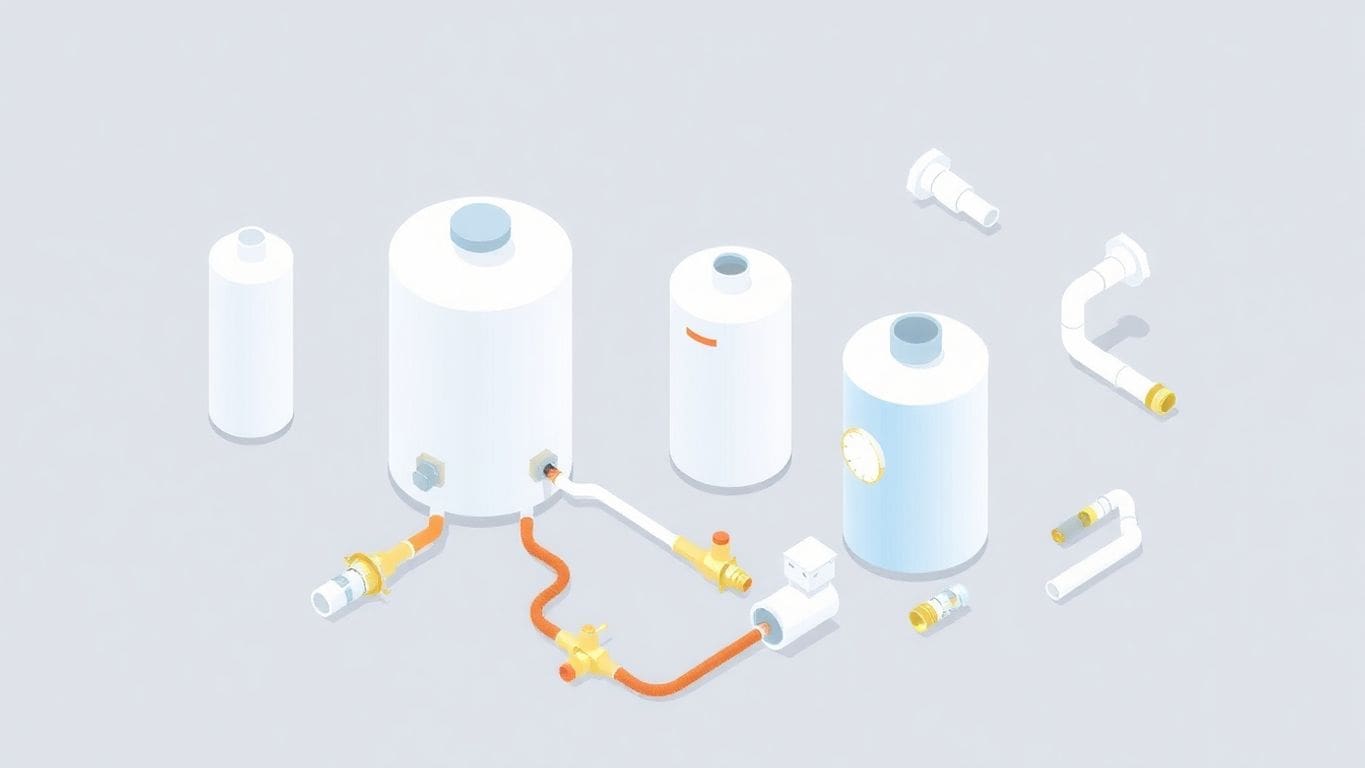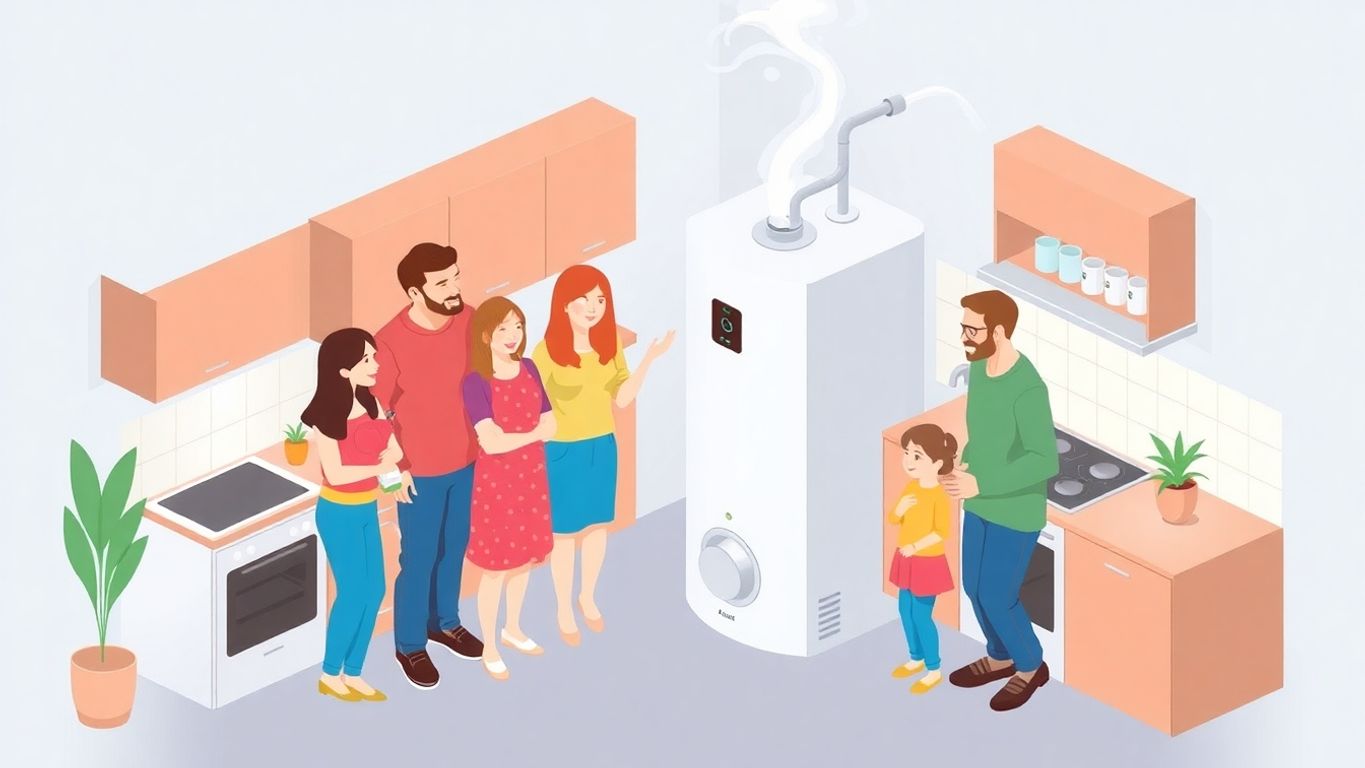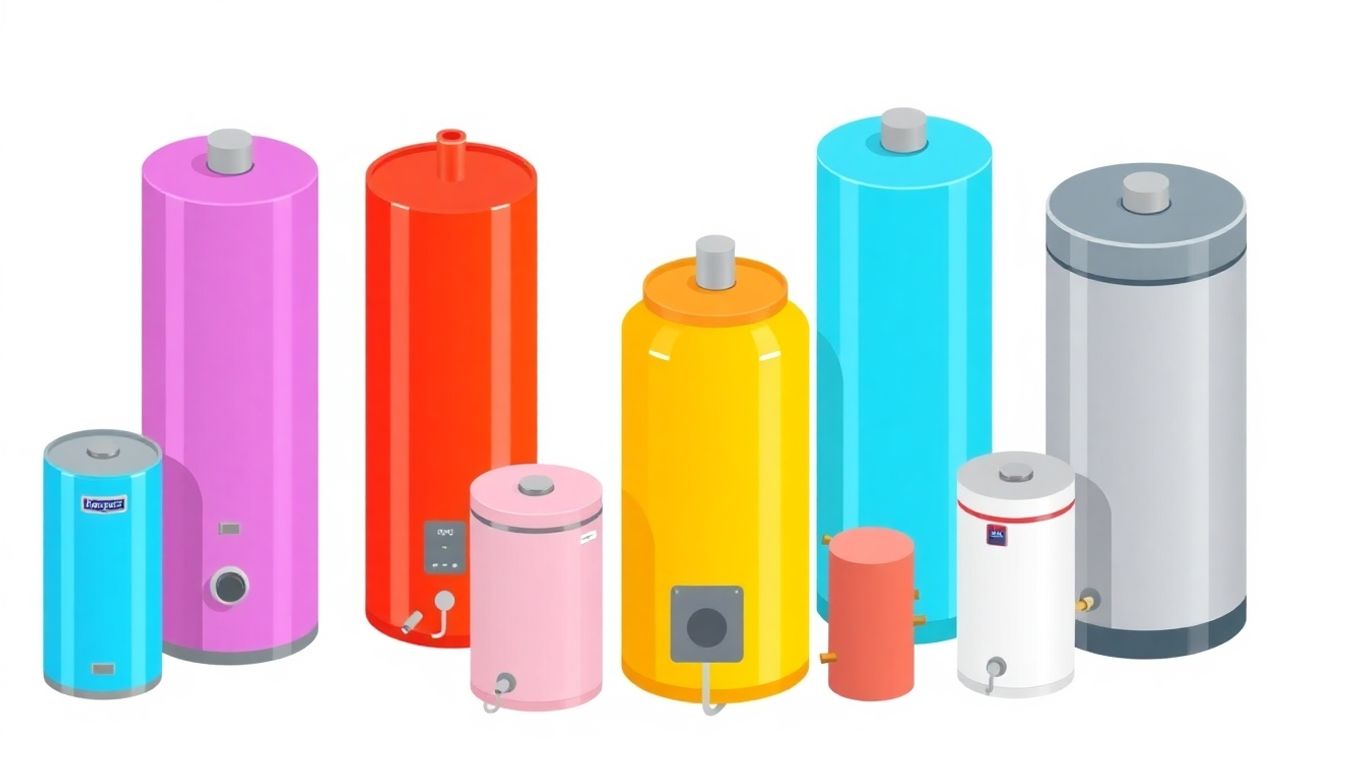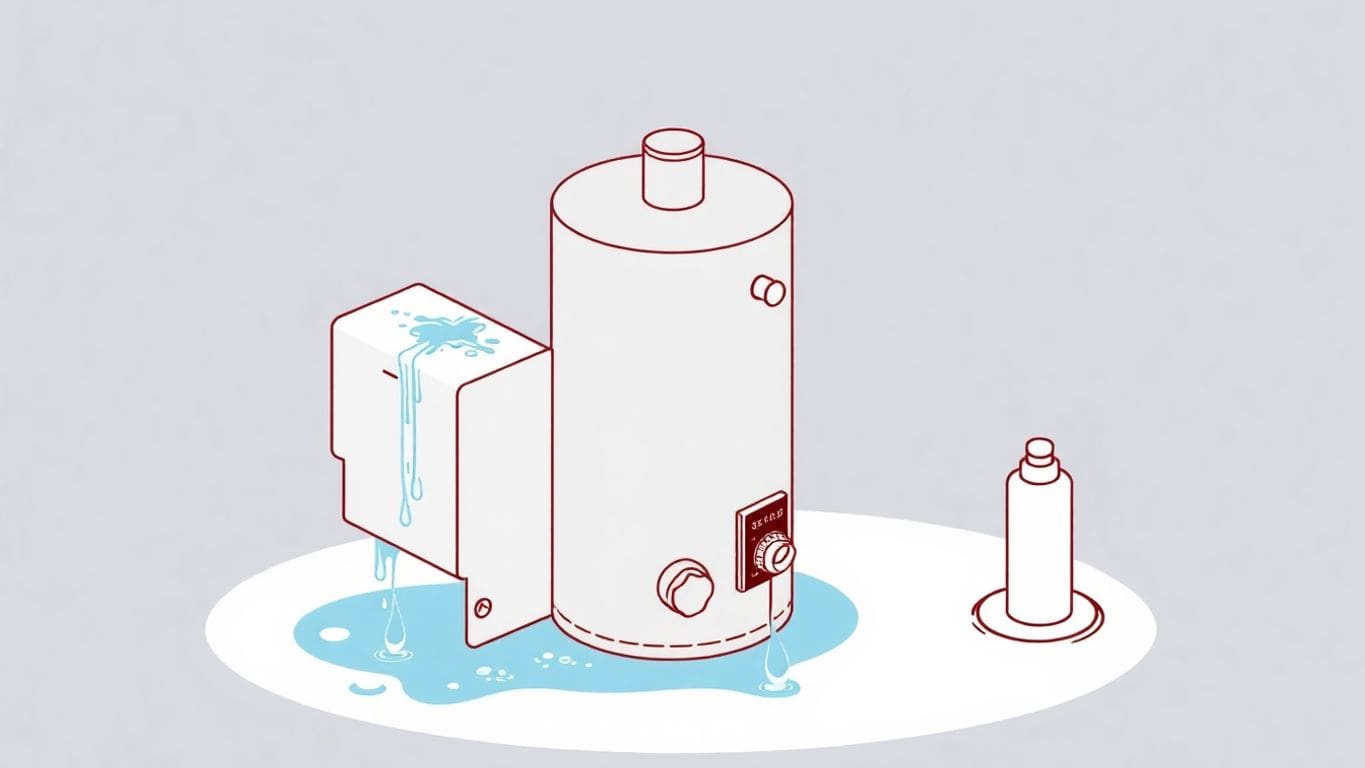
Picking out the best hot water heater for a large family can be a bit of a puzzle. With so many options and things to think about, it’s easy to feel lost. But don’t worry, we’ve got you covered! This guide will walk you through everything from understanding your family’s hot water needs to exploring different types of heaters and considering energy efficiency. Whether you’re dealing with multiple bathrooms or planning for future family growth, we’ve got tips to help you make the right choice.

To choose the right water heater, you first need to know how much hot water your family uses each day. Think about how many showers you take, how often you wash dishes, and how many loads of laundry you do. An average family might use around 50 gallons of hot water a day, but your needs could be more or less. Knowing your daily usage helps pick the right size heater.
Next, figure out when your family uses the most hot water. Is it in the morning when everyone is getting ready for the day? Or maybe in the evening when dishes and laundry pile up? Understanding these peak times can help you decide if a tankless water heater, which heats water on demand, might be a good fit.
If your family might grow in the future, plan for that now. A bigger family means more hot water. Even if you don’t have extra people, your needs might change. Maybe you’ll add a bathroom or start using more hot water for hobbies or home projects. Planning ahead can save you from needing a new water heater later.
Planning for your family’s hot water needs now means fewer headaches in the future. It’s all about making sure everyone is comfortable and your home runs smoothly.
Choosing the right water heater can make a big difference in your home. There are several types to consider, each with its own pros and cons. Let’s take a look at the main options.
These are the classic models most folks are familiar with. They store hot water in a big tank, ready for when you need it. The tank’s size can range from 20 to 80 gallons. Once the hot water is used up, the tank needs time to refill and heat up again. This means you might have to wait for hot water if your family uses a lot at once.
Pros:
Cons:
Tankless water heaters are also called "on-demand" heaters. They heat water only when you need it. This means you won’t run out of hot water, which is great for big families. They are more energy-efficient and take up less space.
Pros:
Cons:
Hybrid heat pump water heaters are a mix of traditional and modern technology. They use electricity to move heat from the air or ground to heat the water. This makes them very energy-efficient and can save you money over time.
Pros:
Cons:
When deciding on a water heater, think about your family’s needs and your home’s setup. Upgrading an old water heater can not only improve efficiency but also keep your home safe from leaks and other issues.
Each type of water heater has unique benefits. Consider what matters most to your family, like cost, space, and energy use, before making a decision.
When picking a hot water heater, energy efficiency is super important. It helps save money and is better for the planet. Let’s dive into some key points.
Energy Star ratings tell you how efficient a water heater is. Higher ratings mean better efficiency. These ratings help you compare different models easily. Look for the Energy Star label when shopping. It can save you a lot on energy bills over time.
Water heaters use different fuels like electricity, gas, or even solar power. Each has its pros and cons:
Investing in an efficient water heater might cost more upfront. But it saves money in the long run. Efficient models use less energy, which means lower bills. Plus, they often last longer, reducing the need for future replacements.
Think about your family’s future needs. A bigger family might need a more efficient model to keep up with hot water demand.
Choosing the right water heater is more than just picking a brand. It’s about finding the best fit for your family’s needs and budget.

Figuring out how much hot water your family uses is the first step. Think about all the times you use hot water in a day. Showers, washing dishes, doing laundry—these all add up. For a big family, you might need a water heater that holds more than 55 gallons.
Here’s a simple list to help you:
Add these up to see how much you use in a day.
If you have more than one bathroom, you’ll need a bigger water heater. Imagine everyone wanting to shower in the morning. You don’t want to run out of hot water! It’s smart to get a heater that can handle the busiest times. Consider your home’s peak hot water needs.
Don’t forget about the kitchen and laundry room. Washing clothes and dishes takes a lot of hot water too. You might want to get a heater with a higher capacity if you do laundry often or have a big family.
Choosing the right size water heater is about making sure everyone gets hot water when they need it. It’s all about comfort and convenience, so take your time to figure out what’s best for your family.
When picking a water heater for your big family, space is a big deal. Traditional tank water heaters need a lot of room compared to tankless models. Make sure you have enough space in your home, especially if you’re thinking about a big tank. If space is tight, a tankless or hybrid model might be better. They take up less room and can fit in smaller areas.
You might wonder if you can install the water heater yourself or if you need a pro. Doing it yourself can save money, but it can also be tricky. If you’re not sure, hiring a professional is a safe bet. They know what they’re doing and can make sure everything is set up right. Plus, some warranties need a pro to do the installation to stay valid.
If you’re going for a modern electric or heat pump water heater, you might need to upgrade your home’s electrical system. Some of these heaters need more power, and your current setup might not be enough. It’s a good idea to have an electrician check things out. They can tell you if you need to make changes. Planning ahead can save you from headaches later on.
Remember, getting the right water heater is not just about the heater itself. It’s also about where it will go and how it will be installed. Take the time to think about these details, and you’ll have a better setup for your family’s needs.
When you’re looking at water heaters, the first thing you’ll notice is the price tag. Traditional tank heaters might seem cheaper upfront, but they can cost you more over time in energy bills. Tankless and solar heaters usually have higher initial costs. However, they save money on utilities because they’re more efficient.
Think of it like buying a car that gets great gas mileage. You pay more now, but save later.
If the upfront cost seems daunting, don’t worry. There are lots of ways to make it easier on your wallet. Many companies offer financing plans. Plus, there are rebates and tax credits available. For instance, the federal government offers a 30% tax credit for heat pump water heaters. This can cover both the unit and installation, up to $2,000.
Don’t forget about maintenance! Regular check-ups can prevent big problems down the road. Tankless and hybrid models need less regular maintenance than tank models, but might require professional help for certain parts. Over time, factor in these costs as they can add up.
Balancing initial costs with long-term savings is key. Consider how much hot water your family needs and how much you’re willing to spend now to save later. With the right choice, you’ll enjoy hot showers without breaking the bank!
Keeping your water heater in top shape is super important. Regular maintenance ensures your heater works efficiently and lasts longer. Let’s dive into how you can take care of it.
Make a habit of checking your water heater regularly. Routine inspections help spot problems before they become big issues. It’s a good idea to have a professional look at it once a year. They’ll check for leaks, rust, and other signs of wear.
You can do some maintenance yourself. Here are a few simple steps:
Sometimes, things get tricky, and you need an expert. Call a professional if you notice:
Regular maintenance isn’t just about fixing problems—it’s about preventing them. A little effort now can save you a lot of hassle later. Keeping your water heater in good condition means hot showers for everyone, any time!
Imagine adjusting your water heater from anywhere. With smart water heaters, you can. These devices let you change settings using your phone or computer. This is super handy if you’re away from home and want to save energy. You can even turn it off when you’re on vacation and back on before you return. This feature can help you save money on energy bills.
Leaks can be a big problem. They can cause damage and waste water. Smart water heaters often come with sensors that alert you if there’s a leak. This means you can fix issues before they become major problems. It’s like having a watchdog for your water system.
Knowing how much energy your water heater uses can be eye-opening. Smart heaters track this for you. You can see how much hot water you use and when. This helps you understand your habits and find ways to reduce energy use.
Keeping an eye on your water heater’s energy use can help you be more eco-friendly and save money.
Here’s a quick list of what smart water heater features offer:
Smart features make managing your water heater easy and efficient. They help you save money and protect your home. If you’re thinking about getting a new water heater, consider one with these smart features. They might just make your life a little simpler.
Solar water heaters use the sun’s energy to heat water. This means lower electricity bills and less pollution. They work well in sunny places. Solar heaters can be a big money saver over time. Plus, you might get a tax break for going solar.
Using less energy helps the planet. By choosing eco-friendly heaters, you cut down on carbon emissions. This helps fight climate change. A smaller carbon footprint means a healthier Earth for everyone.
Many governments offer rebates or tax credits for eco-friendly choices. This can make buying a green water heater cheaper. Check local programs to see what you can save. Going green is not just good for the planet; it can be good for your wallet too.
Choosing an eco-friendly water heater is a step towards a sustainable future. It’s about making choices that benefit both your family and the planet.
When picking a water heater, check the warranty. It’s like a promise from the maker about how long the heater should last without problems. Most water heaters have warranties that last from three to twelve years. Longer warranties often mean the heater is built better. They might have bigger parts or thicker insulation to keep heat in. It’s worth paying a bit more for a longer warranty.
Water heaters don’t last forever. On average, they last about 8 to 12 years. But this can change based on the type of heater and how you use it. For example:
Thinking ahead can save you trouble. When your water heater gets close to its lifespan, start planning for a new one. Here are some tips:
It’s smart to plan ahead for a new water heater. This way, you won’t be caught off guard when your old one stops working. Having a plan can save you money and stress.
When picking a water heater, it’s easy to overlook how much hot water your family actually uses. Don’t guess when it comes to your family’s needs. Think about how often everyone showers, does laundry, or uses the dishwasher. A small heater might work for a couple, but a large family will need something bigger.
A big mistake is not checking if you have enough space for the water heater you want. Measure the area where you plan to install it. Remember, tankless models save space, but traditional ones need more room. Space is crucial, so make sure you have enough!
Choosing a water heater without considering energy efficiency can cost you more in the long run. Look for models with good energy ratings. They might be pricier upfront, but they save money over time. Energy-efficient heaters are better for the environment too.
Think about it: spending a bit more now on a good water heater can save you money and headaches later. It’s like an investment in your home’s comfort and efficiency.
Here’s a quick checklist to avoid these common mistakes:
By keeping these points in mind, you’ll be better prepared to choose the right water heater for your family.
For large families, it’s usually best to have a water heater that holds 55 gallons or more. This ensures that there’s enough hot water for showers, laundry, and dishes.
Yes, tankless water heaters can be great for large families because they provide endless hot water. However, you might need more than one unit to meet high demand.
To boost energy efficiency, look for water heaters with Energy Star ratings. Regular maintenance and using insulation blankets can also help save energy.
The choice depends on availability and cost in your area. Common options include electricity, natural gas, propane, and solar. Gas heaters often have lower energy costs.
It’s a good idea to check your water heater annually. This includes flushing the tank to remove sediment and checking the pressure relief valve.
Hybrid water heaters are energy-efficient and can save money on utility bills over time. They use heat pump technology to heat water, which is more efficient than traditional methods.
While some people choose DIY installation, it’s often safer and more efficient to hire a professional, especially for gas or electric connections.
Yes, most water heaters come with warranties that can range from 6 to 12 years. It’s important to check the warranty details before purchasing.



